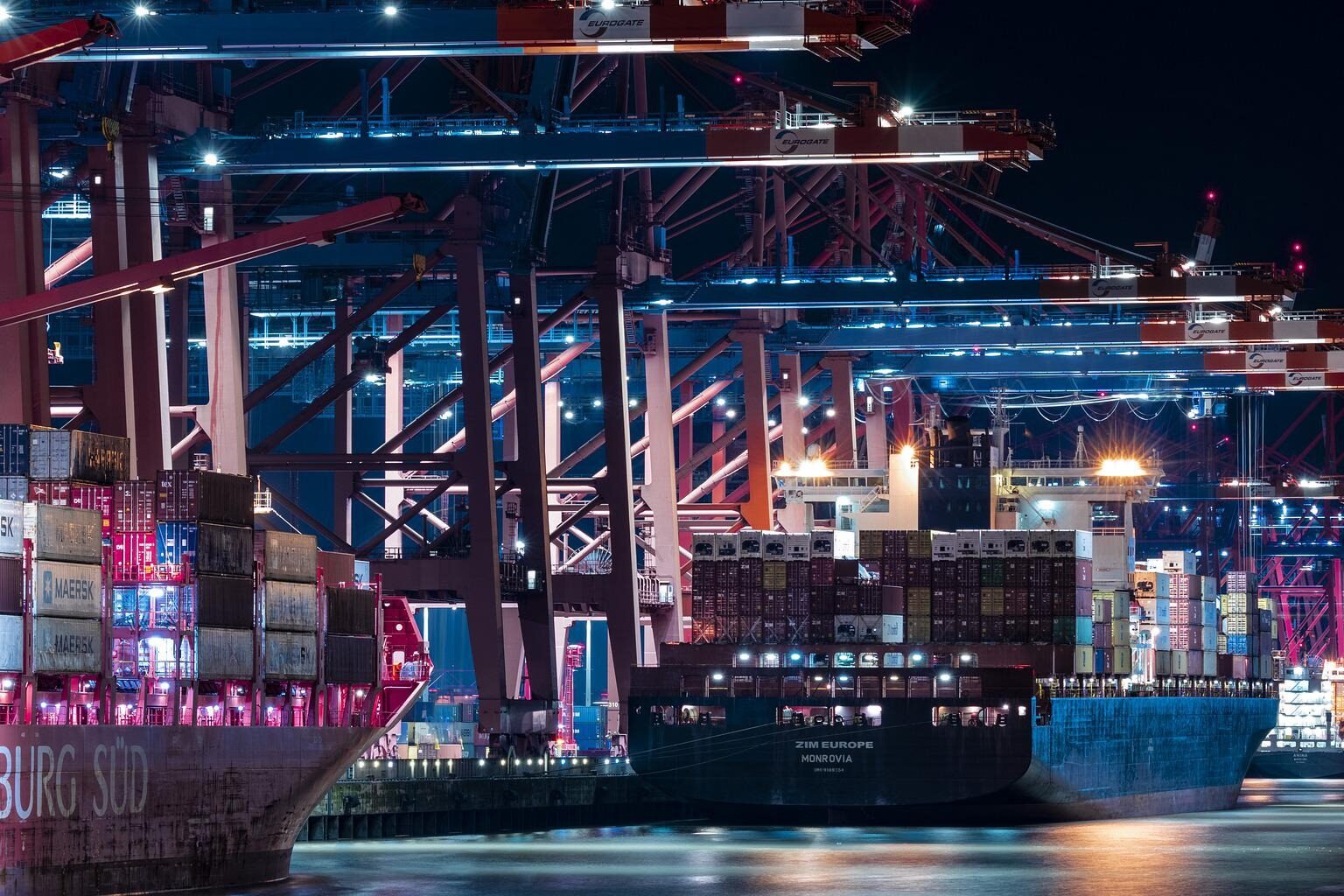- China promotes the interconnection of Eurasia with the multilateral development of the Belt and Road
- The current world coincides with a century of changes and a century of epidemics, and the process of globalization has encountered adverse currents

A few days ago, the Globalization Think Tank (CCG) held the China Globalization 30-person Roundtable in Beijing with the theme of "China and Globalization in the 21st Century". In response, China's plans and ideas for promoting globalization in the post-epidemic era, etc., shared opinions and suggestions on China's in-depth participation in and promoting the transformation and development of globalization.
What does China think
Will the current deglobalization and deglobalization lead to the end of globalization? In this regard, the participating experts gave negative judgments one after another, and pointed out that globalization has only encountered a reverse current and entered a new stage of reorganization and reappearance.
To judge whether globalization is over, it depends on where the main driving force of globalization comes from. According to Gu Xuewu, director of the Center for Globalization at the University of Bonn in Germany and a specially invited senior researcher at CCG, a modern market economy system with capital as the guide and profit as the ultimate goal is the real driving force of globalization, but no major economic system can be seen now. There is a tendency to abandon the market economy system. In the past, countries enhanced mutual trust and established many bilateral and multilateral mechanisms, but now mutual trust has been damaged, and the contradiction between nationalism and globalization is prominent.

From a longer-term historical perspective, Guo Zhonghua, a professor at the School of Government Management at Nanjing University, believes that although globalization has regressed in some areas, with the development of technologies such as digitalization and artificial intelligence, its development in other areas is stronger.
Li Xiangyang, dean of the Institute of Asia-Pacific and Global Strategy of the Chinese Academy of Social Sciences, said that globalization should be considered from the perspective of productivity and production relations. From the perspective of productivity, globalization refers to the cross-border production of goods and services and the cross-border flow of factors; from the perspective of production relations, it is necessary to observe the rules and orders that affect cross-border flows. If the rules and order of production relations cannot adapt to the cross-border flow of production factors and commodities, it will hinder globalization, otherwise, it will promote globalization. The anti-globalization and anti-globalization that we are talking about now are largely caused by the problem of the distribution of globalization benefits between countries. In the past decade, the global value chain has gradually shifted from the priority of efficiency to the priority of resilience, and it is necessary to consider the costs and benefits of different countries' participation in globalization.

"The future direction of globalization depends on the game between market logic and political logic." Wu Xinbo, Dean of the Institute of International Studies at Fudan University and Director of the Center for American Studies, believes that infinite globalization is moving towards limited globalization, globalization is slowing down, and globalization is slowing down. dynamics are also changing. Market logic is the driving factor for globalization, while political logic such as populism and strategic competition among major powers inhibit globalization.
How does China do it
Globalization is at a new crossroads, how to rebuild? Many experts pointed out that China can play a key leading role in promoting globalization in the post-epidemic era and inject new impetus into the development of globalization.

Huang Renwei, Executive Dean of the Belt and Road and Global Governance Institute of Fudan University, believes that the Belt and Road construction is promoting the development of version 2.0 of globalization. He pointed out that the construction of the Belt and Road has expanded from infrastructure construction to areas such as digital, green and health, and its open rule system and global governance system are integrated with each other.
In terms of the role of China, Wu Zhicheng, deputy dean of the Institute of International Strategy of the Central Party School (National School of Administration), put forward six suggestions: to maintain sobriety and strategic determination, from the overall strategic, historical and global perspectives. The overall situation is to recognize the long-term, complex and tortuous nature of globalization development, strengthen strategic thinking and strategic determination, and coordinate the two overall situations. Open up horizontally, build a higher-level open economic system, continue to enhance the country's comprehensive strength, and strengthen the positive force for globalization; promote the construction of a new type of international relations and relations between major powers; actively guide the development orientation of globalization and promote economic globalization Towards a more open, inclusive, inclusive, balanced and win-win direction; it is necessary to effectively enhance the ability to participate in globalization, and strengthen capabilities in terms of globalization strategy optimization, public product supply, cooperation concept transformation, and professional talent training. It is necessary to promote the joint building of a community with a shared future for mankind, adhere to multilateralism, oppose unilateralism, and jointly build a world of lasting peace, universal security, common prosperity, openness, inclusiveness, beauty and cleanliness.

Regarding the path for China to participate in and promote globalization, in "China and Globalization in the 21st Century" written by CCG Chairman Wang Huiyao and CCG Secretary-General Dr. Miao Lu, it is proposed that China should gather the strength of overseas Chinese and communicate with the world to build consensus; The Confucian cultural circle can be used as a link to promote the creation of a new combination of Asian countries; to promote the interconnection between Europe, Asia and Africa through the multilateral development of the Belt and Road; to enhance the depth, height and breadth of South-South cooperation among developing countries in Asia, Africa and Latin America; The role of the EU in the coordination and balance of major powers; forging a healthy relationship of competition and cooperation between China and the United States, managing differences and expanding cooperation; improving global governance and providing new institutional support for building a community with a shared future for mankind.Editor/XuNing
Comment
 Praise
Praise
 Collect
Collect
 Comment
Comment
 Search
Search














Write something~